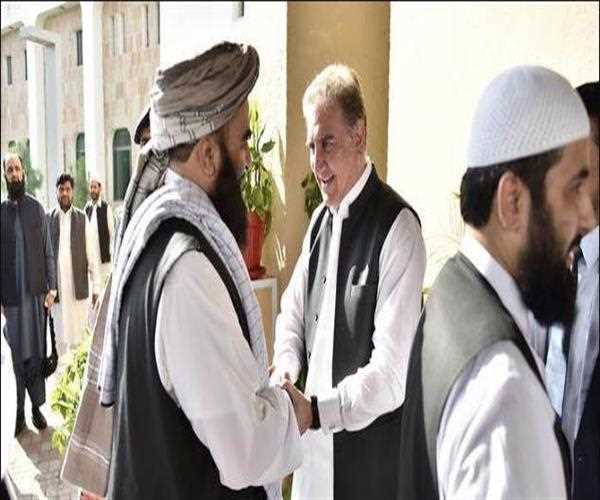Search here

18-Mar-2020
Pakistan Sees A Chance With US-Taliban Deal
Playing text to speech
Pakistan's Foreign Minister Shah Mahmood Qureshi was an obviously cheerful man at the February 29 marking service of the harmony bargain between the United States and the Taliban in Qatar's capital, Doha.
Qureshi had valid justification to be satisfied as Islamabad's approach of pushing an arranged settlement with the extremists, the stone in the shoe of its relationship with Washington, was vindicated by the understanding.
For over 10 years, it had withstood progressively exceptional weight from the US for its stubborn refusal to act against or remove self-banished Taliban pioneers dependent on Pakistani soil, trusting that the White House will grapple with the purposelessness of the nation's longest war.
At the point when the opportunity arrived, Pakistan's administration encouraged arrangements and conveyed a lift to President Donald Trump's re-election crusade, acquiring acclaim from the irregular head during his ongoing voyage through India, scarcely 20 months after he gave a mortifying open final offer to Islamabad to stop giving places of refuge to fear mongers and cut off military guide.
Befittingly, the arrangement was marked in the interest of the Taliban by its political boss Mullah Abdul Ghani Baradar, who was captured in Karachi 10 years back by Pakistan's security benefits in a joint activity with the CIA.
The onus is currently on President Ashraf Ghani and his opponent previous Chief Executive Abdullah to determine their capacity battle, following a spoiled political race, and present an assembled front during dealings with the Taliban on a political settlement.
Ghani, specifically, has exhibited an inclination for brinkmanship by tying his endorsement for the staged arrival of 5,000 Taliban prisoners, a key part of the harmony manage the US - to the universal acknowledgment of his re-appointment.
Expecting that the procedure takes off, Pakistan can reasonably anticipate relative security along its more than 2,000km (1,250 miles) in length western fringe with Afghanistan just because of the Soviet attack of December 1979.
READ HERE MORE : Coronavirus Is The Most Trending News Now
The US-Taliban bargain incorporates a stipulation for composed counterterror tasks against the Khorasan governorate of the ISIL (ISIS) gathering, ISIL-K, built up in eastern Afghanistan in mid-2015 by nonconformist authorities of the Taliban and Pakistan Taliban, known by the abbreviation TTP, escaping a definitive military activity in North Waziristan.
From that point forward, they have pursued a cross-outskirt attempt at manslaughter crusade against Pakistan's security powers, corresponding to a battle of dangerous bombings in Jalalabad and Kabul.
The viability of joint activities was exhibited in November, when US and Afghan powers, as a team with explicitly sent Taliban units and Pakistani powers situated along with the close by outskirt, denied ISIL-K powers of their regional foothold in Nangarhar territory.
Toward the finish of this rainbow lies Pakistan's craving to remake its hit or miss, key relationship with the US.
It is profoundly worrying that the suspension of American military guide has undermined its resistance ability, and considerably progressively stressed by Washington's energy to arm India as an offset to China's developing impact in the Indo-Pacific district.
To accomplish that end, Pakistan needs to quit utilizing furnished gatherings to battle for its benefit in its contentions with different nations.
It unquestionably won't occur without any forethought, and it pivots gigantically on the result of the Afghan harmony process, yet leaders in Islamabad realize that they won't show signs of improvement chance to accomplish maintainable dependability.

Comments
Solutions
Copyright 2010 - 2024 MindStick Software Pvt. Ltd. All Rights Reserved Privacy Policy | Terms & Conditions | Cookie Policy
